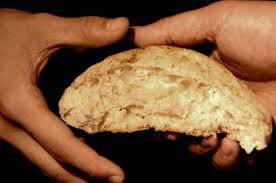Cambridge, MA. I am still pondering how I might put together a coherent sequence of posts for the Lenten season—several years back I turned to the Yoga Sutras, and last year to the Bhagavad Gita—but as I figure that out, I cannot help but post a few comments on the first reading for the first Sunday of Lent in this year “C” in the three year cycle: namely, this beautiful testimony from Deuteronomy 26, part of Moses' long instruction:
In itself, this is a beautiful testimony to Israel’s remembrance of God’s promises, how the community was protected from generation to generation. We have no right to close the borders, stop our ears against the cries of the poor; we are no different from those in dire need today. Hearing these words at Mass confirms for us that this is our history too; we too are the wanderers, the outsiders and immigrants, those who have over history at times been oppressed, deprived, in need of liberation.
The context—26.1-15—shows us that this is also a ritual moment. It begins with the instruction to realize that we have come into the promised land flowing with milk and honey, now gifted with an abundance of the fruits of the land:
We take up a portion of all that God has given us, and bring it to our familiar place of prayer, and present it to the Lord. Then we make the confession, “A wandering Aramean was my ancestor…” But Moses—the speaker in this and most chapters of Deuteronomy—is not done, since further instructions follow, as to what to do with those gifts of the earth. First, we are to share these gifts:
Celebrating the Lord’s bounty: an interesting and profound way to celebrate Lent.
Indeed, in the year of the special gift (the tithe), we are to share all we have received, “giving it to the Levites, the aliens, the orphans, and the widows, so that they may eat their fill within your towns.” (26.12) And then return return yet again to the Lord, in the place of prayer, and confirm that we have shared our gifts, the abundance of what God has given us and (in words that seem aimed at the technicalities of pious customs of ancient Canaan and Israel) promise that we have not diverted the gifts to rituals and customs that would deprive the Levites and resident aliens, the orphans and the widows. The instruction closes with a further prayer:
I suggest that the reading stands as an instruction for the beginning of Lent, an invitation to observe this Lent differently than usual. We are accustomed to focus on the Gospel—today from St. Luke—on Jesus in the desert, in prayer and fasting, and in rejecting the allures of Satan, and we are accustomed to structure our Lenten practice around that primal desert sojourn. Rightly so, but this year Deuteronomy offers another model worth trying: remember in detail all the promises of God that have come true, for me, for my family and loved ones, for our church and nation; gather up these gifts, promises fulfilled, protection given, and bring them before the Lord in an act of thanksgiving repeated each day in Lent; and figure out, as Lenten practice, how to share those gifts with the community of the church, and with the poor, the outcast, the marginalized. The hungry, lonely, broken-hearted, exiled, need not wait until Lent is over.
There is of course much more to be said, on the historical background of the text, the nature of the offering, the implementation of this practice in the history of Israel; there is much to be said about what is not ok in our lives, about things gone wrong and not redeemed, about prayers unheard and promises unfulfilled; and there is much to be pondered regarding what is not said at all, if we see here an ancient historical record: what about the Canaanites, for instance, whose land has now from taken from them and given to the children of Israel? Save all of that, return to it when you can.
But for this Lent, consider simply doing what Deuteronomy 26 asks of us: remember what God has done for us, bring those memories to the Lord in thanksgiving, and then share the gifts with those in need, near and far.







